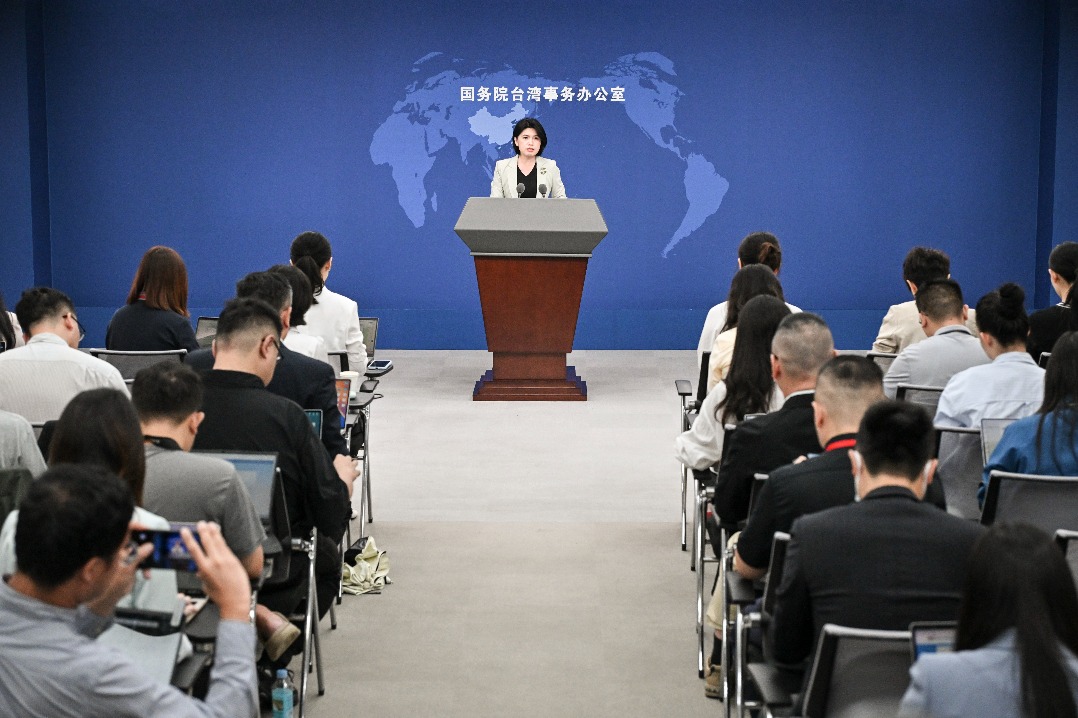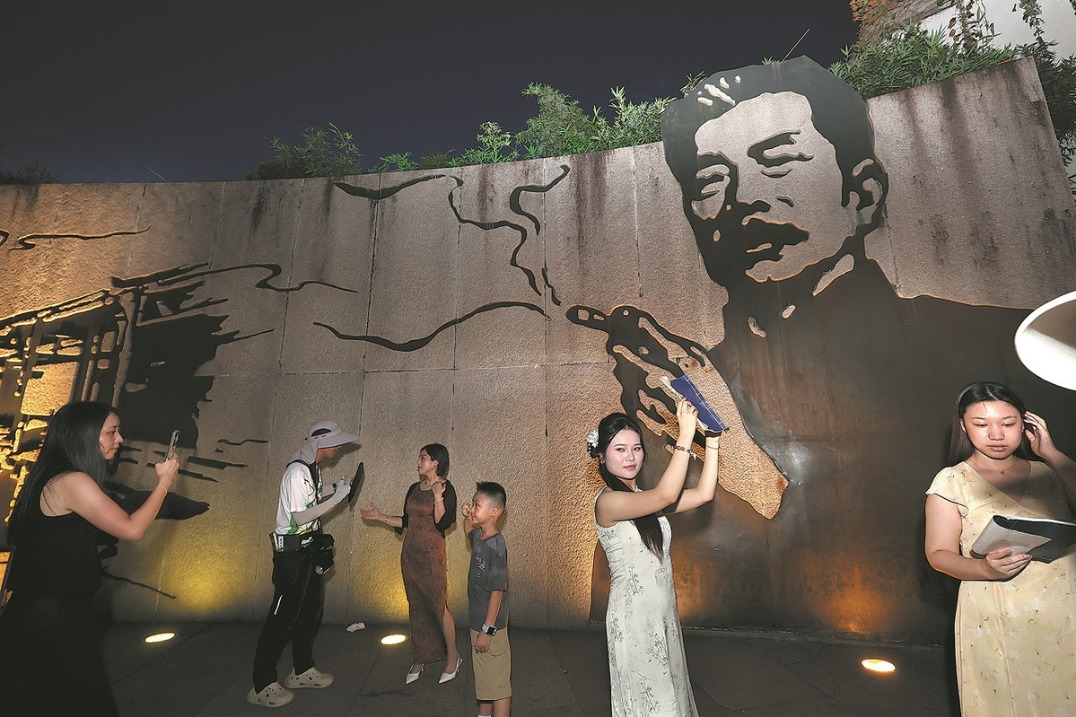Drawing inspiration
Accomplished composer produces a musical homage to 100 years of Chinese animation, Chen Nan reports.

She looks skinny and fragile. A large floral wrap is pulled up around her neat short hair. Gazing at the man standing in front of her as she walks out of her room, she gives him a big smile and a warm hug.
She is Liu Sola, an internationally renowned, pioneering composer, vocalist, writer and artist. The man is her longtime friend, Tu Song, the senior program director of the Beijing Music Festival, the capital's largest annual music event which falls every October.
During the 18th iteration of the festival, back in 2015, Liu and her band, Liu Sola &Friends, performed in a concert titled The Heaven and Earth Totem. Instead of performing at one of the city's venerable concert halls, Liu and her band took their music to The Orange, a trendy venue located in the popular lifestyle hub Taikoo Li Sanlitun, in downtown Beijing.
"It was a memorable and exciting performance", Tu recalls.
It was therefore natural that the Beijing Music Festival invited Liu to perform again when the festival and the Shanghai Symphony Orchestra co-commissioned a new piece several years ago, which is dedicated to the centenary of Chinese animation.
The new piece, Symphonic Dances The Legend of Monkey King, was scheduled to make its global debut during the Beijing Music Festival, which was set to celebrate its 25th anniversary. However, due to the ongoing pandemic, the festival was postponed. The premiere was therefore staged by the Shanghai Symphony Orchestra and the Liu Sola & Friends band, under the baton of conductor Zhang Jiemin, in Shanghai on Oct 6.
"It was a joyous concert," says Liu, who watched the performance on video. "My band and the orchestra worked together very well. I could feel their strong, explosive energy."
At 67, Liu remains cool and sharp. She lives in her studio located in Beijing's eastern suburbs. Her band also does rehearsals there, in a high-ceilinged room, which enjoys natural sunlight that streams through a window in the roof.
Liu didn't go to Shanghai with her band because she is recovering from a severe illness that has kept her bedridden for about four years.
"I was not able to compose or write. Thanks to my doctors — they pulled me back from the edge of despair," says Liu.
She was told by her doctors that her brain functions are as good as somebody in their 20s, which would aid her recovery.
When she was invited to compose for the new piece, Symphonic Dances The Legend of Monkey King, Liu agreed.
She was intrigued by the theme since, like many Chinese people, she watched the classic domestic animation The Monkey King: Uproar in Heaven as a child. She was also eager to learn if the composing process, which keeps her brain active, would be helpful to her recovery.
"I spent eight months working on the new composition. In the beginning, I could only work for half an hour a day, gradually building up to one hour," says Liu. "I call the new work 'a celebration of life'."
The Monkey King, or Sun Wukong, is a character from the classic Chinese tale Journey to the West, by Ming Dynasty (1368-1644) writer Wu Cheng'en. The story follows the adventures of a Tang Dynasty (618-907) monk and his three disciples during their journey to obtain Buddhist scriptures.
Produced and released by Shanghai Animation Film Studio during the 1960s, the animated film The Monkey King: Uproar in Heaven has become one of the best-known "superhero" animations in China, and has been enjoyed by both children and adults.
"I watched it over and over again, and it inspired me to imagine. All the movements and scenes from the animation made me very excited. The music came naturally and smoothly," says Liu.
The original music featured in the film is traditional Chinese music. Musical instruments, such as suona (a double-reed woodwind instrument), gongs and cymbals, vividly portray the character of the Monkey King, who is powerful and unbeatable, always doing somersaults and full of life. In Symphonic Dances The Legend of Monkey King, Liu also used traditional Chinese musical instruments, such as percussion and pipa (a four-stringed Chinese lute), as well as guitar and piano, to go with the symphony orchestra, bringing the character to life.
Her music gives those traditional Chinese musical instruments a contemporary twist, as well as showcasing their versatility.
"Working on the new piece was very good for me. Before I fell ill, I was pessimistic. To my surprise, I became more optimistic by writing the new piece. You can hear it in the music," says Liu.
"I always loved dancing. It's a piece that makes you want to dance," she adds.
Born in Beijing, Liu learned to play the piano as a child. In 1978, Liu and her classmates, including Tan Dun, Chen Qigang and Guo Wenjing, were among the first group of students to be admitted to the Central Conservatory of Music after the "cultural revolution" (1966-76). They've also become the first generation of Chinese composers to be recognized by Western audiences.
Like many young musicians, Liu tried to explore and build up her own music world by experimenting in different art fields and working with different artists.
In 1985, she achieved fame with her novella You Have No Choice (Ni Bie Wu Xuan Ze), depicting a group of highly gifted, but frustrated music students.
In 1987, she visited the United States, where she met and worked with local jazz and blues musicians. Later, she lived in London, before moving to New York in 1993.One of her best-known albums was Blues in the East, which was released in 1995. It was her debut album, which saw her collaborate with top jazz and blues musicians in New York, such as Bill Laswell, Henry Threadgill and Umar Bin Hassan. Liu's following album, China Collage, in 1996, saw her compose for pipa and voice. Her oeuvre also covers opera, movie soundtracks, dance and theater.
Her music also encourages dialogue.
In 1997, she founded her band in the US, Sola & Friends, collaborating with top jazz musicians such as Amina Claudine Myers, Fernando Saunders and Pheeroan akLaff. In 1999, she returned to China with her musicians to perform during the Beijing Jazz Festival. In 2000, she returned to China again and founded the New Folk Big Band, which is considered to be the first ever Chinese folk and jazz fusion big band. In 2003, she founded the Liu Sola & Friends band, which was made up mainly of top Chinese instrumental soloists.
The idea of gathering those top Chinese musicians into one ensemble stemmed from a performance by Chinese percussionist Li Zhengui, which Liu watched during the late 1990s. She was overwhelmed by the sound of Li's instrument. From 2012-15, new members joined in, such as guitarist Liu Yijun, a former member of the established Chinese rock band Tang Dynasty, pipa player Yang Jing and guqin (a seven-stringed instrument) player Wu Na. The youngest member in the lineup was born after 2000.
They toured worldwide and worked with Western musicians. Liu taught her classically trained ensemble musicians to improvise, to be open-minded and to find their own sounds.
Liu recorded the history and stories of her band in her new book, titled Wandering in Sound, which was published recently. She started writing the book in 2007, eventually managing to complete it in 2015.
"All the musicians in the band are top musicians in China. They received classical training and have solid techniques. But besides techniques, they've developed the ability to bring out the energy of music, which is primitive, raw and full of passion," says Liu. "They came together as a band and experienced something that deserved to be shared by more people, especially young students who are learning music."
As she continues her recovery, Liu says that she spends an hour a day, composing, writing or drawing.
"I feel happy as long as I am able to create something," she says, adding that, as a foodie, she really wants to travel around the country to enjoy the different cuisines. She will also turn her life experiences into music and words.
As the interview wraps up, Liu asks Tu about her lipstick.
"Is it still there?" she inquires.
"Yes. You look great," Tu replies.
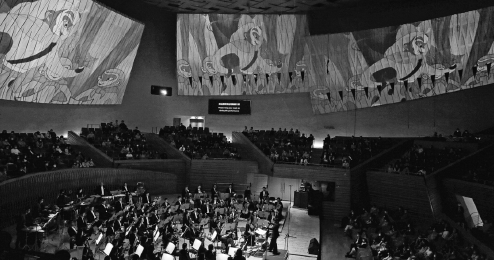
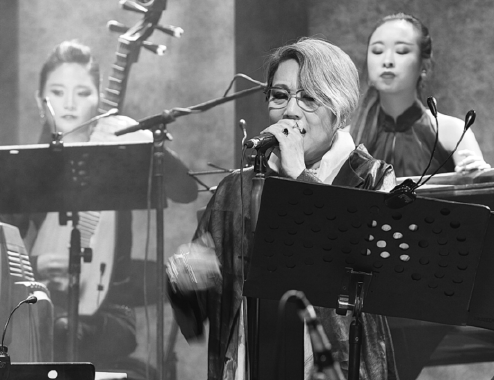
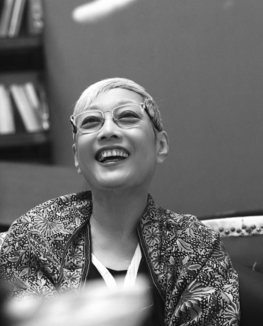
Today's Top News
- SCO helping develop a multipolar world order
- Tajikistan looks to China for deeper ties
- High-tech manufacturing lifts industrial profits
- Avenue blooms with flowers to mark victory
- Mainland slams DPP for distorting WWII history
- Northeast Asia trade in focus at Jilin expo


















